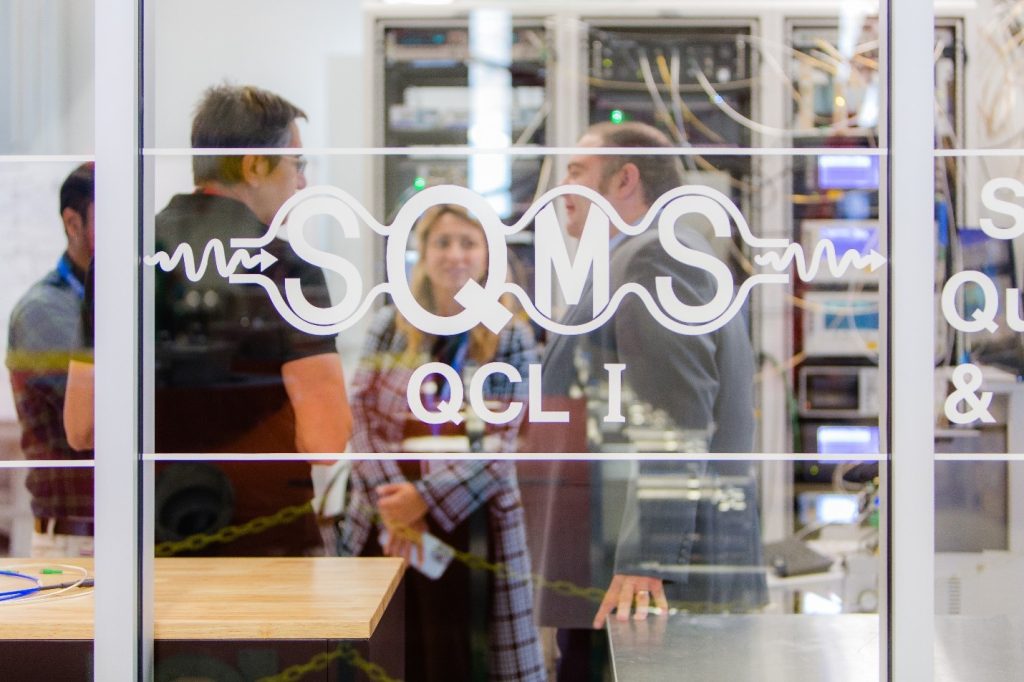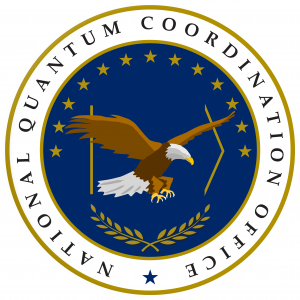Original Link: https://www.quantum.gov/cheek-by-jowl/ Archived PDF: Cheek by Jowl - National Quantum Initiative.pdf
Highlighting the Fermilab-led Superconducting Quantum Materials and Systems Center
(August 3, 2023) Quantum is global, and I’m proof of that. Through an international postdoctoral fellowship from the National Science Foundation (NSF), I worked overseas at the Cavendish Laboratory in the United Kingdom, at the University of Melbourne in Australia, and at the University of Tokyo in Japan. Little did I know how valuable those experiences would be 15 years later as Director of the National Quantum Coordination Office.
Quantum technology is extremely broad. Even within the subfields of sensing, networking, and computing, there are multiple, sometimes dozens, of potential technology paths to useful realization. To explore that large space of options, it is vital that we work with our international partners.
In a speech to the 76th Session of the United Nations General Assembly, President Biden said it best: “As new technologies continue to evolve, we’ll work together with our democratic partners to ensure that new advances in areas from biotechnology, to quantum computing, 5G, artificial intelligence, and more are used to lift people up, to solve problems, and advance human freedom.” National Security Memorandum 10 (NSM-10) on Promoting United States Leadership in Quantum Computing While Mitigating Risks to Vulnerable Cryptographic Systems reinforced the importance of international quantum cooperation in moving science forward and in deploying interoperable standards for quantum resistant cryptography and other technology protection measures. Most recently, the National Quantum Initiative Advisory Committee also supported the follow-through of international cooperation activities with a recommendation for dedicated funding for international quantum cooperation.
Being first together is immensely more preferable than being second, or last, apart. With this spirit, the U.S. hosted a multilateral discussion on May 5, 2022 called Pursuing Quantum Information Together: 2^n vs 2n to discuss these and other issues among a subset of countries with a long history in quantum, including a discussion of critical aspects of the supply chain, and the national quantum strategies or initiatives of each country. Subsequent meetings in London and Paris have grown these relationships and discussions. The first output from the multilateral dialogues was the Entanglement Exchange, a clearinghouse of opportunities for QIS researchers and students to work abroad. Each of a growing list of countries hosts and updates their own entanglement exchange page. We are also increasingly working together to share best practices for quantum outreach and education. World Quantum Day is a great example of this. U.S. participation began in full force in 2021, and this past April, quantum made it into hundreds of schools through the APS Quantum2Go and QuanTime. Check out the latest video produced by the National Q-12 Partnership.
International cooperation is one of the six key policy pillars of the U.S. National Quantum Strategy. Of course, international partnerships in QIS existed well before the signing of the 2018 National Quantum Initiative Act. Collaborations between scientists, mentorship between professors and students, and agency programs that directly fund international groups or collaborations have created deep ties between researchers. Recognizing the importance of strengthening international cooperation, the United States has signed ten bilateral quantum cooperation statements since 2019 and participated in dialogues with our international partners. These international quantum cooperation statements exemplify core values that drive rigor and integrity in research: good-faith cooperation, openness, transparency, equity, fair competition, freedom of inquiry, protection and enforcement of intellectual property, and democratic values. We acknowledge the need to act multilaterally to create trusted supply chain and protect our investments. Ultimately, multilateral agreements are critical to export controls and research security protocols that don’t slow the science down.
In 2021, the National Science and Technology Council (NSTC) Subcommittee on Economic and Security Implications of Quantum Science (ESIX) released its first policy report on The Role of International Talent in quantum information science (QIS). The report highlights the critical role that international talent and partners play in the U.S. quantum ecosystem. We take technology protection seriously, and it has also been the policy of the United States to advocate for open research. As the son of an immigrant myself, I deeply understand why getting this right is so important.
Last fall, I had a chance to visit Fermilab in Illinois. Fermilab is known as the most open and international of the U.S. Department of Energy’s (DOE) National Labs, so it’s fitting to highlight it in this post. The Superconducting Quantum Materials and Systems (SQMS) Center, led by Fermi National Accelerator Laboratory, is one of five national quantum information science research centers funded DOE as part of the National Quantum Initiative. This center seeks to apply decades of experience in particle accelerator design to frontier challenges facing quantum computing and sensing. The Director of SQMS also happens to be Italian and those research connections persist in the center. Fermilab and their partners bring expertise in the materials science of high-quality superconducting cavities, cryogenics, and custom electronics to these problems. One memory that stands out from my visit (among many great technical discussions) was meeting the cryogenic electronics group, a group of engineers with diverse backgrounds working together and with academia and industry to understand and prototype the future needs of qubit control. So cool!

Charles Tahan is Assistant for the Quantum Information Science and Director of the National Quantum Coordination Office.

More on The National Quantum Coordination Office (NQCO): The NQCO is responsible for coordinating the National Quantum Initiative and working across the federal agencies to develop the national strategy for quantum information science, including other quantum technologies like sensors and networks. The US quantum strategy is focused on getting the science right, enhancing American competitiveness, and enabling our people to benefit from this new field. Quantum information science is the quintessential critical and emerging technology. It is foundational, meaning that it will impact many different technologies from new types of sensors to disruptive quantum computers. It is emerging, because despite decades of funding – federal investment alone has doubled over the last few years – we are still learning how applications of this technology may affect society and are still working to solve the many scientific hurdles that we still face.